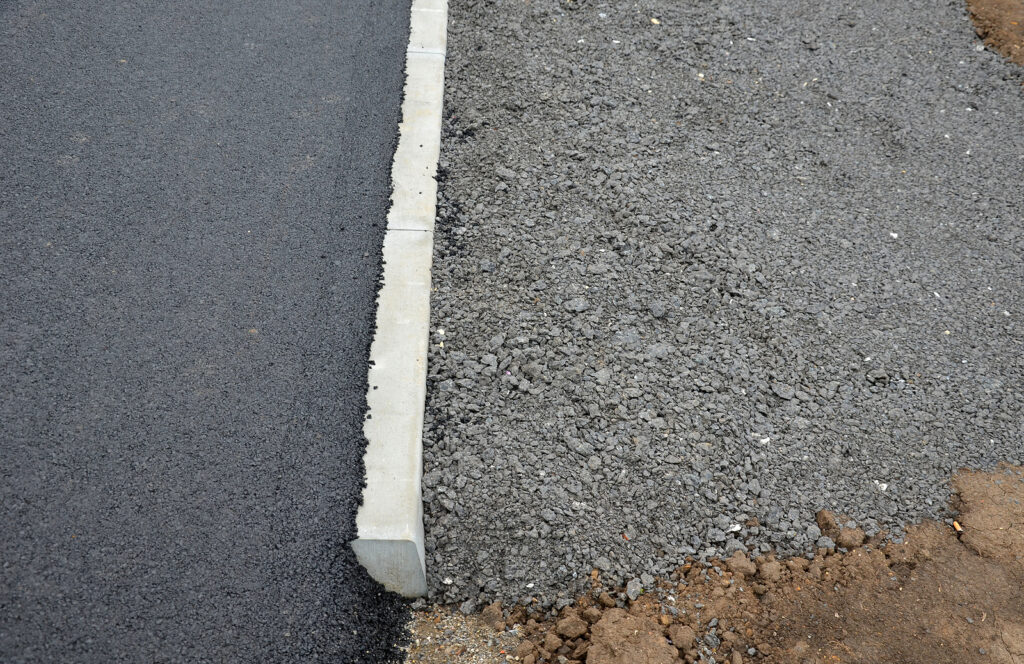If you are a real estate developer or business owner, you likely have property. With this property comes to need for paving, a need you will be given dull discretion over. When deciding on the type of paving material to go with, you may be wise to consider recycled asphalt. Continue reading to learn the top 3 benefits of choosing recycled asphalt, as well as where to get professional commercial paving work in Central Indiana.

Recycled Asphalt and Asphalt Millings
There are many advantages of using recycled asphalt for your commercial paving project, but the benefits that take the lead include cost-savings, environmental wellness, and durability. When speaking with your commercial paving contractor about your upcoming pavement plans, ask them about material options before settling with new mix asphalt. Recycled asphalt just might be the best choice for your paving applications and business needs!
Cost Efficiency
Anything recycled will cost less than the same material mined from new ore. The same pecuniary principle applies to asphalt materials. Recycled asphalt is cheaper per square foot compared to brand new hot mix asphalt. But do not mistake this cost cut as an indication of reduced quality or performance. Recycled asphalt retains equal strength, durability, and overall quality as unrecycled asphalt material. Property owners often put these extra cost savings toward other expense needs, such as bollard posts, line striping, parking lot signs, and more.
Eco-Friendliness
Because recycled asphalt is well, recycled, it supports environmental wellness. This makes it a terrific Eco-friendly pavement options for business owners and real estate developers. It is strongly supported by global studies that the application of recycled asphalt helps to reduce global greenhouse emissions, which are generated as a result of industrial operations. Furthermore, refurbishing and reusing asphalt materials positively impacts the national landfill crisis.
Durability
As mentioned, recycled asphalt materials retain the same strength and durability as non-recycled asphalt material. This durability and long-lasting performance of recycled asphalt makes it a valuable alternative to using new asphalt material. You can expect recycled asphalt pavements to last up to 50 years with good care and routine maintenance. Asphalt longevity and durability will also keep money in your pockets because it reduces the need for repairs and overhauls.
Whether you are looking to install a parking lot system for your new commercial building or preparing to pave an entire subdivision you’ve recently developed, your top priority should be finding a qualified and reputable commercial paving company in Indiana.
Are you interested in learning your top choices for long-lasting commercial asphalt? Contact ACI Asphalt and Concrete at 317-549-1833 for commercial asphalt paving and repair in Indianapolis, Indiana and its surrounding counties. We serve commercial and industrial clients.
Related Posts:
What is Pavement Milling?
An Eco-Friendly Asphalt Binder Option
The Difference Between Hot Asphalt and Warm Asphalt Mix

